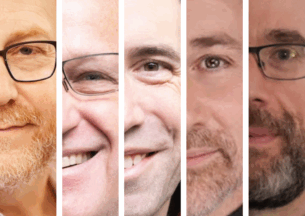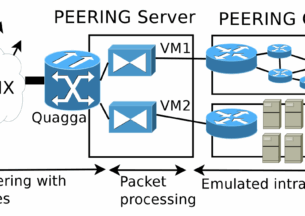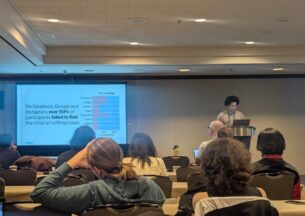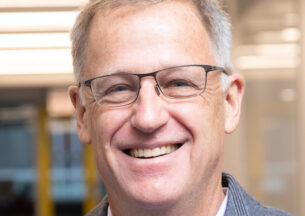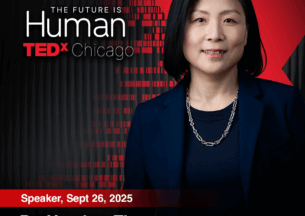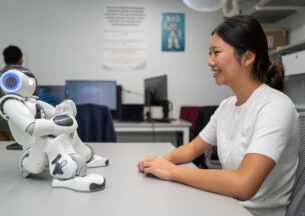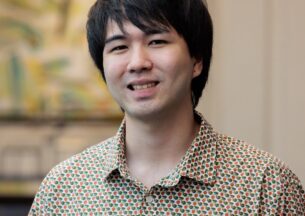Alumni Spotlight: Shama Tirukkala ‘24 is a Fulbright Finalist
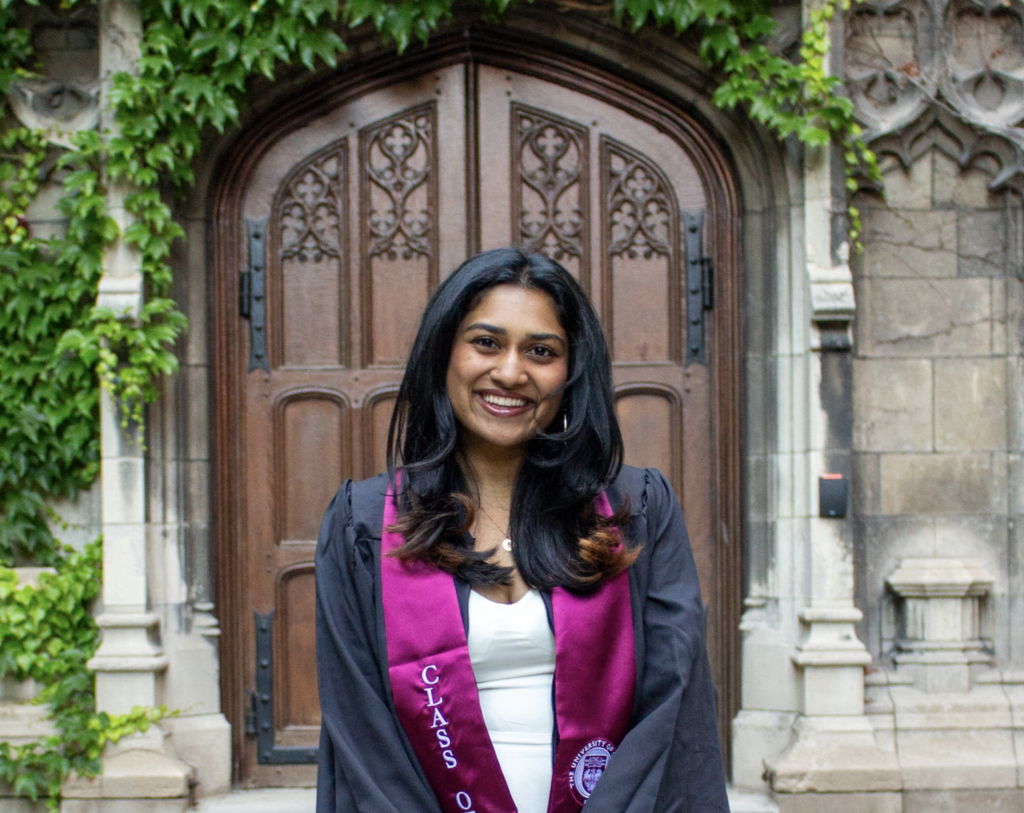 Shama Tirukkala ‘24 majored in Computer Science and Classics during her time at the University of Chicago. Her career goal is to work in government on tech policy and AI regulation, ensuring that new technologies are developed in a way that is both innovative and safe. She has already gained valuable experience through the New York City Urban Fellows program, where she has been applying her computational skills to streamline legislative analysis for the Fire Department of New York. Now, as she prepares to embark on a Fulbright English Teaching award in Cyprus, Shama is also setting her sights on law school and specializing in tech law and policy.
Shama Tirukkala ‘24 majored in Computer Science and Classics during her time at the University of Chicago. Her career goal is to work in government on tech policy and AI regulation, ensuring that new technologies are developed in a way that is both innovative and safe. She has already gained valuable experience through the New York City Urban Fellows program, where she has been applying her computational skills to streamline legislative analysis for the Fire Department of New York. Now, as she prepares to embark on a Fulbright English Teaching award in Cyprus, Shama is also setting her sights on law school and specializing in tech law and policy.
You double-majored in computer science and classics. How did you decide to merge those two fields, and how did that shape your career goals?
My goal is to attend law school and focus on AI regulation and tech policy from a government perspective. I’ve wanted to go to law school since I came to UChicago as a transfer student. I took a few CS classes, and while they were difficult, I enjoyed how widely applicable the skills were. As a CS and Classics double major, I saw a lot of overlap between them; you could use CS processes to understand how to best preserve things from the classical world. I thought that overlap was interesting, and it got me thinking about the parallels between preserving artifacts and preserving intellectual property.
I believe we need more people in government who are educated on the tech side to help figure out ways to regulate these technologies in a way that both encourages innovation and emphasizes safety. I never wanted to be a coder, but I want to use my knowledge of the law and technology to help with that challenge.
Can you share a particular CS class or professor that had a significant impact on your academic interests or future goals? What made that experience memorable for you?
My favorite CS class was “Engineering for Ethics, Privacy, and Fairness in Computer Systems” taught by Professor Blase Ur! I especially loved this class because I took it at a time when ChatGPT had recently been released, and it was the first time I understood how ChatGPT and AI systems as a whole can encode bias and violate people’s privacy. There were two features of this class that I especially appreciated: one was the fact that we had a constant stream of projects related to different facets of AI, which I thought was eye-opening; the other was the fact that we had to read many pieces of policy analysis and a lot of CS research papers that made what we were working on feel very grounded in the current state of AI research and governance. I’d highly recommend the class for anyone interested in the ethical implications of AI; it’s also really fun!
Professor Blase Ur and Professor Marshini Chetty’s courses have had some of the most tangible impacts on what I want to study in the future. They’re both incredibly knowledgeable professors who also care very deeply about the subject matter they teach. Their classes, such as Professor Ur’s aforementioned “Engineering for Ethics” and Professor Chetty’s “Inclusive Technology: Designing for Underserved and Marginalized Populations,” were when I got to study and analyze how the concepts I learned throughout the CS major can both empower and exclude users. I am also incredibly grateful to Madison Pickering (who is a Ph.D. student and was my TA for two classes), who helped me understand a countless number of security concepts that would’ve gone straight over my head otherwise!
You’re currently working for the Fire Department of New York through the NYC Urban Fellows program. How does that role connect with your interest in tech policy?
When I interviewed for the FDNY, I realized there was a lot I could do to both learn on the law and policy side and also bring in my tech knowledge. A large part of my role is analyzing legislation and acting as the fire department’s lobbying agency, in a way, to get outcomes at the city, state, and federal levels that are advantageous for saving lives.
Where I’ve been able to bring in my technology background is with day-to-day automations. For example, we receive thousands of bills in large packets, and it’s very tedious to go through them all. I coded something that parses the PDFs and, based on a few keywords I input, flags the relevant bills for us to review. It’s also been interesting to learn how city governments are adapting to new technology and using AI and automation more.
Congratulations on your Fulbright award! What will you be doing, and why did you want to pursue this opportunity?
The Fulbright is a cultural exchange program, and I’ll be in Cyprus for a year as an English Teaching Assistant. I was encouraged to apply by one of my Classics professors at UChicago, Dr. Jordan Johansen, who had done the same program and felt it really informed the work she did later on.
I thought it would be a great new experience to have before law school. The program also allows you to do side projects, and I’m interested in doing research into archeology and repatriation, which are topics I’m very interested in and can bring back with me to law school. I’ll be applying to law school before and during my time in Cyprus.
What’s next for you after the Fulbright fellowship ends?
The plan is to start law school in the Fall of 2026. There, I would like to focus on tech policy and get into that field. Over the past year, I have tried to build a foundation for this work. I participated in the Paragon Policy Fellowship, where I worked with the Montana State IT department to come up with recommendations for how they should structure their IT budget. I also took an AI safety course through an organization called BlueDot Impact. I want to keep up with it all and continue learning.


